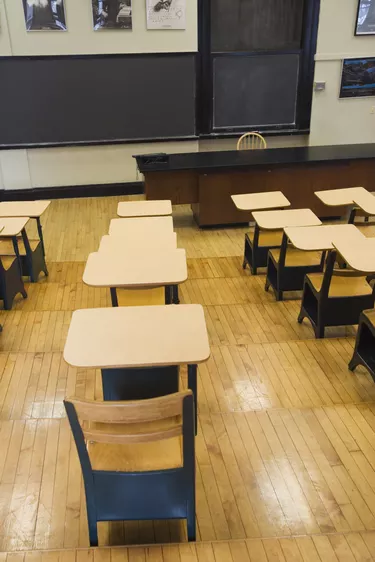
In the United States, most cities and states rely heavily on property taxes to fund public education. As with any funding scheme for a public service, there are negatives as well as positives, and no solution can satisfy all voters and residents.
Significant Fund Flow
Video of the Day
Free education is an expensive public service and requires a significant source of funding; property taxes are just such a major revenue source. According to a comprehensive report published by the Lincoln Institute of Land Policy, entitled "The Property Tax-School Funding Dilemma," half of all property tax revenue in the United States is used to fund public primary and secondary schools. If property taxes and school funding were to be decoupled, a significant source of alternative revenue, which would likely be taxes under a different name, would have to be found.
Video of the Day
Ability to Pay
Another advantage of using property taxes to fund public education is that those with a greater ability to pay are taxed more. Homeowners tend to be better off than renters, and owners of expensive homes usually have more funds at their disposal. Therefore, the value of a resident's house acts as a simple and fairly accurate measure of her wealth.
Value Enhancement
A rather strong justification for using property taxes to pay for schools is that the quality of education provided in local schools improves property values in a county. In a way, homes in a particular location are worth more, partly because schools are good, and good schools require more investment than bad schools.
Unfair
A disadvantage of property-tax-funded schooling systems is that individuals who have no children, those who moved into the area when their kids were too old to use the public primary or secondary education system or people those whose kids go to private school are taxed just as heavily as a family who lives in a house of the same assessed value and has four kids. In other words, the system makes no consideration of how heavily an individual is utilizing the service.
Volatile
Property tax revenues are volatile. When the values of homes drop, so does property tax revenue. Many local school districts, therefore, face hardship during housing busts. Such downturns can be especially distressing for the school system because when home values suffer, unemployment tends to increase. As a result, more families send their children to public schools, instead of private schools. Consequently, the school system is burdened with more students precisely when there is less money to fund it.